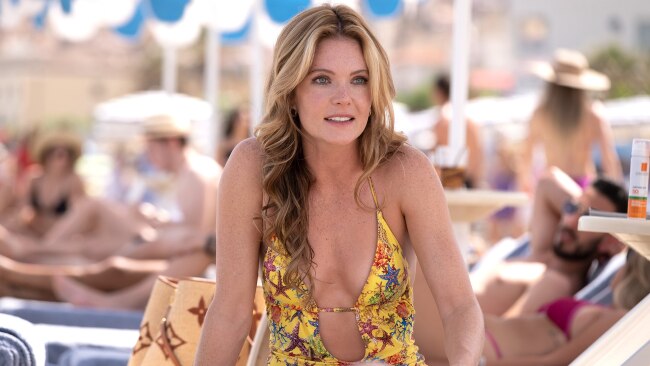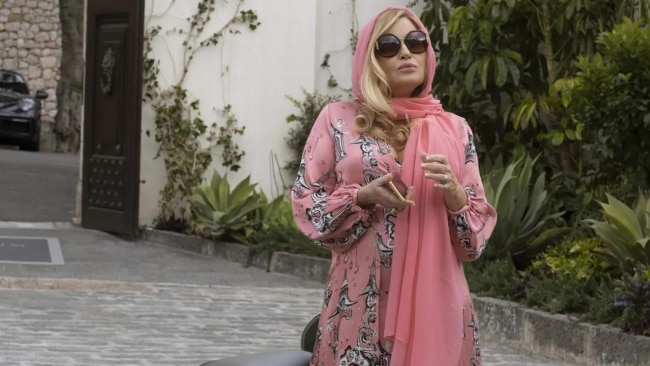When did feminism become such a dirty word?
The ‘fourth wave’ that gave us #MeToo has come crashing down amid sloganeering and rows over gender identity. Where do women go from here?
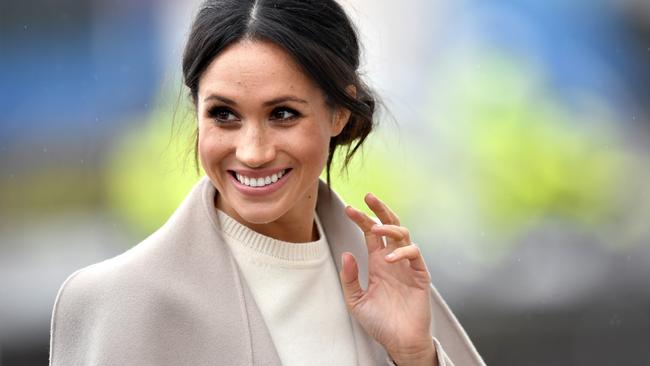
The ‘fourth wave’ that gave us #MeToo has come crashing down amid sloganeering and rows over gender identity. Where do women go from here?
Come with me, on a journey through time and space, to a now unrecognisable land called . . . ten years ago. Back in 2012, feminism was the hot new trend, so hot it even got its own wave: the fourth wave. The Times columnist Caitlin Moran’s memoir/manifesto How to Be a Woman had been published the year before and publishers in the US and UK were eagerly commissioning similar books from young women with laptops and opinions about abortion, with titles like Sex Object: A Memoir and The Vagenda. Female celebrities, who once reacted to questions about feminism as if you’d asked them about their latest smear test, suddenly couldn’t talk enough about things like the pay gap and body shaming.
Over the next few years, women blogged and tweeted about their experiences with sexual assault; offline, male politicians wore T-shirts with slogans such as “This is what a feminist looks like”, and everyone from Primark to Dior sold T-shirts with feminist logos. When, in 2017, The New York Times published an article accusing the film producer Harvey Weinstein of sexually harassing women, the #MeToo movement was propelled to global prominence, and high-profile men were called out for sexual harassment and assault. The only way feminism could have been more mainstream and widely consumed was if it was liquidised and turned into a frappuccino. Real change, it seemed to so many women, was happening.
Well, real change happened, but not in the direction many of us expected. Standing here now in 2022, gazing upon the wreckage that is fourth-wave feminism, it is hard not to feel total despair at the signs both big and little that the movement utterly failed.
On the big side, in the US, the Roe v Wade abortion law has been overturned; on the smaller, last month a woman was thrown out of the Scottish parliament because her suffragette-themed scarf was deemed too “political”. And as for that seminal Weinstein case that everyone once seemed to care about so much? The newly released film version of it, She Said, starring Carey Mulligan and Zoe Kazan, has bombed at the box office. If feminism was a hot fashion trend in 2012, in 2022 it’s about as passe as a pashmina.

It is extraordinary, really, how swift the backlash has been against feminism’s fourth wave. As the American journalist Susan Faludi put it in her 1991 book Backlash, about the reaction against feminism’s second wave in the 1960s and 1970s, “[a backlash] returns every time women begin to make some headway toward equality, a seemingly inevitable early frost to the culture’s brief flowerings of feminism”. When Donald Trump, a self-confessed groper and accused rapist, won the US election in 2016, it was an early sign that this particular backlash would be bad. But it turned out to be far weirder and in many ways more vicious than anyone could have foreseen.
Social movements that have followed feminism’s fourth wave have often come with a strong strand of misogyny. The Black Lives Matter movement escalated after a white American male policeman killed George Floyd in 2020, yet white women were singled out for endangering black men. “I am enraged by white women weaponising racial anxiety, using their white femininity to activate systems of white terror against black men,” one New York Times columnist wrote in an article typical of the time.
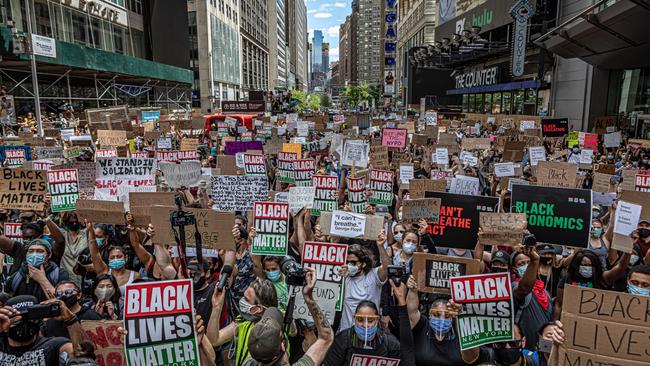
This theory, that white women encourage white men to beat up black people, led to “Karen” becoming the slur of the moment. Initially, it was used to denote women who were racist, but quickly mutated into meaning women who were just a bit annoying: “Karens are moms - pushy ones. They share inspirational quotes on Facebook, buy merchandise inscribed with ‘Love Life Laugh’ and love to ruin teenage fun,” a columnist wrote in a British paper. (Another weird element to this era: how many people have tried to import America’s culture wars into Britain, despite the really quite glaring cultural and historical differences between the two countries.)
The misogyny has been even more blatant in the gender rights movement, which argues that everyone has a gender identity, which may differ from their biological sex. Leaving aside the question of what “gender identity” actually is - and no one has yet been able to define it without recourse to gender stereotypes and quasi-religious references, making it sound like a masculine or feminine soul - this means that a man can say that his gender identity is a woman, and therefore he should have access to women’s single-sex spaces, such as women’s sports teams and women’s prisons. Organisations such as Stonewall have enthusiastically got behind this issue, arguing that it is the new gay rights movement, even though redefining what men and women are has almost nothing in common with the legalisation of homosexuality. And yet, progressive organisations have dutifully fallen into the gender rights line.
READ MORE: I'm a young, ambitious woman choosing kids over work
READ MORE: Meghan Markle invites men on final podcast episode
Gender activists insist there is no clash between gender rights and women’s rights, but any woman who points out that trans women are still biologically male and therefore at an obvious physical advantage in women’s sport, for example, is denounced as a bigot, and in some cases are forced out of their job, such as the researcher Maya Forstater and the university professor Kathleen Stock. But to tell women that not accepting biological males in their spaces puts trans people at risk is outrageous gaslighting: women are far more likely than trans women to be killed by male violence in this country, but such facts have suddenly become very unfashionable in progressive circles.
What is now known as LGBT rights have firmly taken precedence over women’s rights. In 2021, Alexis McGill Johnson, the president and chief executive of Planned Parenthood, an organisation originally established to provide women with contraception, wrote an apology in the New York Times, saying Planned Parenthood had focused “too narrowly on ‘women’s health’, we have excluded trans and non-binary people”. ("What we don’t want to be, as an organisation, is a Karen,” Johnson added, for good measure.) When JK Rowling wrote in her much-discussed but less-read essay that her doubts about gender ideology stemmed from her experience of being sexually assaulted in her twenties, thousands of people - including Labour MP Lloyd Russell-Moyle - accused her of “weaponising her trauma” (Russell-Moyle later apologised). And while there has been much discussion recently about the wrongs of holding the World Cup in a country where homosexuality is illegal, the fact that a man in Qatar can legally beat his wife has merited barely a shrug.
In Scotland, Nicola Sturgeon in particular has championed the gender rights movement. Last weekend, Reem Alsalem, the UN special rapporteur on violence against women and girls, wrote to the UK government saying that Sturgeon’s proposals to make it easier for people to change their legal sex would “potentially open the door for violent males . . . to abuse the process of acquiring a Gender Recognition Certificate and the rights associated with it. This presents potential risks to the safety of women in all their diversity.”
Sturgeon’s Gender Recognition Reform Bill has sparked some controversy among MSPs, but a news story last week gave a glimpse into the sorry state of women’s rights in Scotland under Sturgeon: at a charity event to help end male violence against women and girls, at which Sturgeon gave the main speech, attendees were sent a note ahead of time that said the charity wanted “to create a safe environment for our guests and ask you to support us in this aim by refraining from discussions of the definition of a woman, and single sex spaces, in relation to the gender recognition act . . . This is not the place for that discussion”. Much more important to keep the charity - and Sturgeon - safe from awkward questions than women from male violence, presumably.
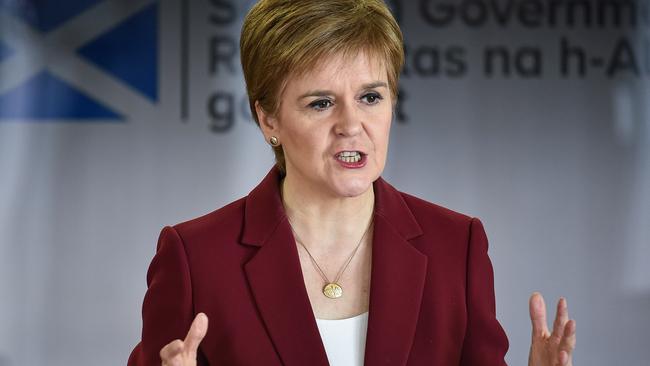
It is stunning to think that the #MeToo movement, with its focus on male aggression and female vulnerability, was at its peak only five years ago, and it’s hard not to see this bullying and silencing of women who speak about their concerns about males in women’s spaces as a massive backlash against it. But it is also a reaction to the failings of fourth-wave feminism, which had become too commercialised, too much about social media hashtags and too associated with nameplate necklaces (which might give the LGBT movement, with its corporate sponsorship alliances and box-ticking rainbow wristbands, something to think about).
So much of fourth-wave feminism was based on individual women’s experiences rather than collective change. On the plus side, this led to #MeToo. On the downside, it led to women seeing validation of their experiences as their feminist right. This was epitomised by the mantra, “Believe women”, which was well-intended, but utterly unworkable - if a society believes in due process and doesn’t think anyone should be damned as a sex offender on the basis of allegation and rumour. It also led to women like Gwyneth Paltrow and Kim Kardashian insisting that everything they did was a feminist form of self-empowerment, because they chose to do it, whether it was posting naked selfies or selling expensive perfumes, and anyone who questioned how feminist any of this was, was slammed as an out-of-date prude.
The most obvious inheritor of all this self-empowering is the Duchess of Sussex, always insisting on “my truth” rather than “the truth”, and whose podcast, which finished last week, was ostensibly about fighting female stereotypes, but turned out to be about fighting anyone who had ever criticised or doubted Meghan. And no one - other than Prince Harry, apparently - can take that version of feminism too seriously for too long.
Fourth-wave feminism was arguably a victim of its success, which is why feminists should feel optimism. Now that the hashtags and the T-shirts have fallen away, they can get down to more serious work. The new documentary Adult Human Female, available online, shows in shocking detail the misogyny that has been directed by gender ideologues at women, including the extraordinary Lucy Masoud - a former firefighter turned barrister - and Karen Ingala Smith, the chief executive of a charity that helps women who are victims of domestic and sexual violence. This cannot be allowed to continue. There is a slew of feminist books coming out next year, starting with Hags by Victoria Smith, about the misogyny and ageism directed at middle-aged women - the anti-Karen book, in other words. FiLiA, the annual women’s liberation conference, has been targeted by protesters for its defence of women’s single-sex spaces, and yet this year’s conference was more popular than ever, and the speakers included Nazanin Zaghari-Ratcliffe and Martina Navratilova. And despite all the vitriol lobbed at her, JK Rowling was named Britain’s second favourite author in a poll last week, beaten only by Jane Austen. (Austen’s opinions on gender rights are, alas, unknown.)
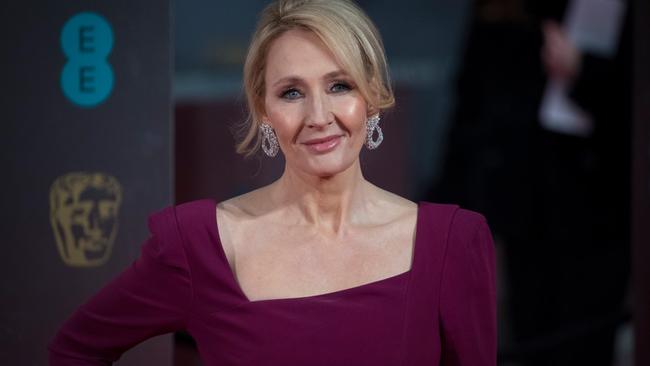
There is a feeling that, after being bullied into silence for the past few years for their unforgivable female privilege, women are speaking up again. The novelist Chimamanda Ngozi Adichie - who had been criticised in the past for daring to say “trans women are trans women” instead of parroting the “trans women are women” mantra - captured this feeling perfectly in her Reith Lecture last week. Its subject is freedom of speech, and it’s a ringing cry for courage, honesty and plurality: “This new social censure demands consensus while being wilfully blind to its own tyranny. It portends the death of curiosity, the death of learning and the death of creativity,” she says.
It is also the death of democracy, equality and critical thinking. Feminism is about all of those things, and it will not be silenced.

